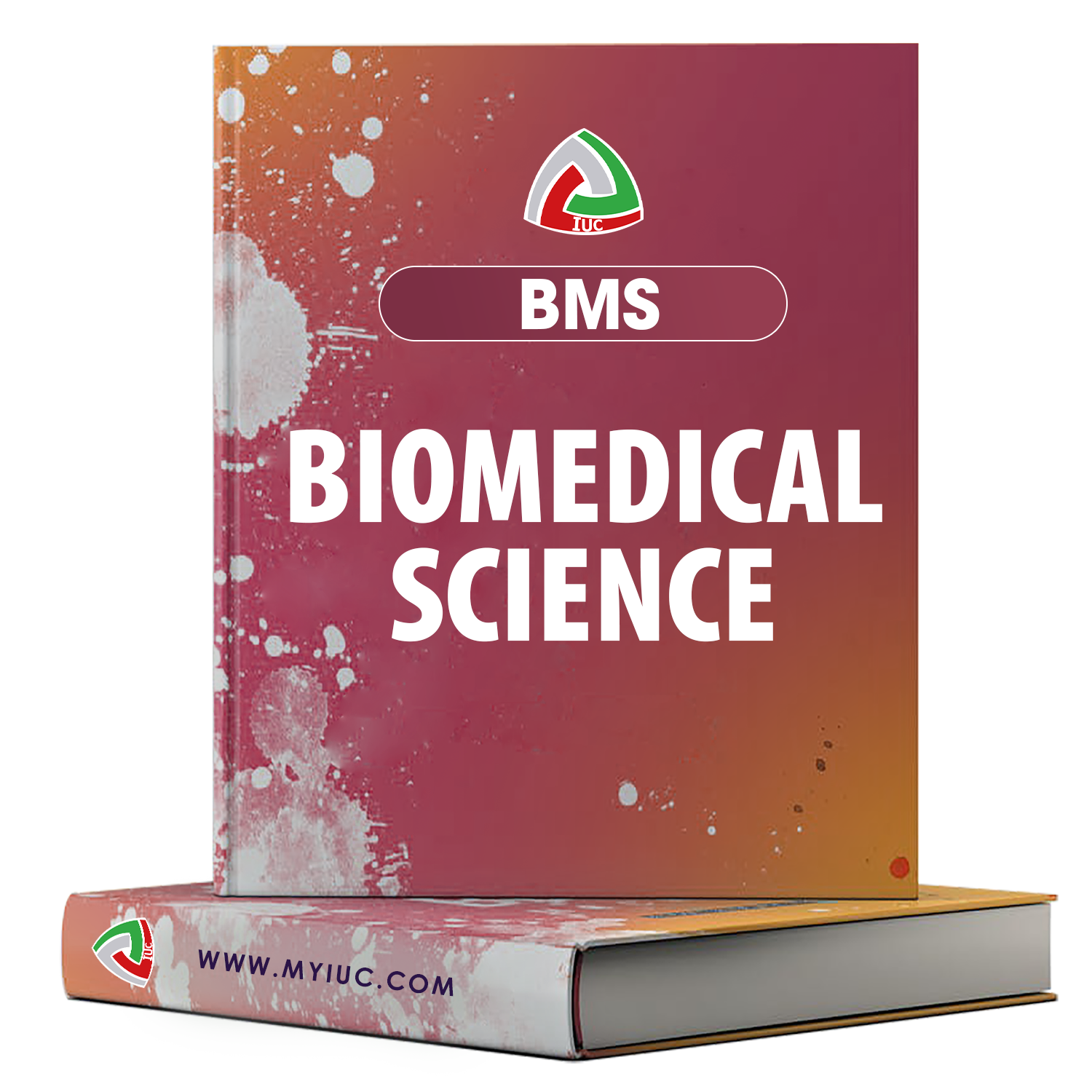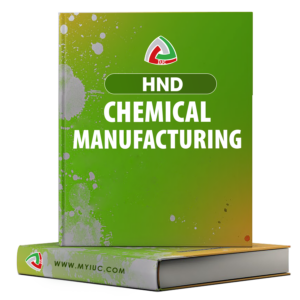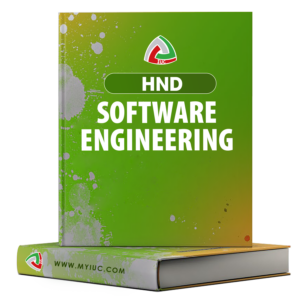The Bachelor in Biomedical Science program is designed to equip students with comprehensive knowledge and practical skills in the fields of biology, medical science, and laboratory techniques. The core objectives focus on building expertise in medical research, diagnostics, and therapeutic advancements, with an emphasis on health, disease mechanisms, and patient care. The program also aims to develop critical thinking, research abilities, and communication skills to prepare graduates for a range of careers in healthcare, research, and biotechnology.
| PROGRAMME |
SEMESTER |
DURATION |
CREDIT |
PARTNER INSTITUTION |
ACCREDITATION |
| BIOMEDICAL SCIENCE |
8 SEMESTERS |
4YEARS |
240 |
UNIVERSITY OF BUEA |
MINESUP |
CORE OBJECTIVES
1. Develop a Strong Foundation in Biological and Medical Sciences
- – Basic Biology: Teach students the fundamental principles of biology, including cell biology, molecular genetics, physiology, and biochemistry, as they relate to human health and disease.
- – Human Anatomy and Physiology: Provide in-depth knowledge of human anatomy and physiological processes, helping students understand the normal functioning of the human body and its response to disease.
- – Microbiology and Immunology: Equip students with an understanding of microorganisms, infectious diseases, and the immune system’s role in defending the body against pathogens.
2. Enhance Research and Analytical Skills
- – Research Methodology: Develop students’ ability to design, conduct, and analyze biomedical research through experimental techniques, data collection, and statistical analysis.
- – Laboratory Skills: Provide hands-on training in laboratory techniques such as PCR, electrophoresis, tissue culture, and microscopy, preparing students for diagnostic and experimental laboratory environments.
- – Critical Thinking: Cultivate the ability to critically evaluate scientific literature, research findings, and experimental results to draw informed conclusions and make evidence-based decisions.
3. Strengthen Knowledge of Disease Mechanisms and Pathology
- – Pathology: Teach students about the mechanisms of diseases, including the causes, development, and effects of various pathological conditions in the human body.
- – Genetics and Disease: Focus on the role of genetics in health and disease, including the molecular basis of genetic disorders, gene expression, and mutation analysis.
- – Pharmacology: Provide a strong understanding of drug interactions, therapeutic mechanisms, and the role of pharmaceuticals in treating diseases.
4. Promote Understanding of Diagnostic Techniques and Technologies
- – Clinical Diagnostics: Introduce students to the principles and applications of clinical laboratory diagnostics, including blood tests, imaging techniques, and molecular diagnostics.
- – Medical Imaging: Provide knowledge of advanced medical imaging techniques such as X-ray, MRI, CT scans, and ultrasounds, and their role in diagnosing medical conditions.
- – Bioinformatics: Equip students with the skills to analyze biological data through computational tools and databases, particularly in genomics and proteomics.
5. Prepare Students for Interdisciplinary Collaboration in Healthcare
- – Healthcare Systems: Teach students about the structure, policies, and challenges of healthcare systems, focusing on the role of biomedical scientists within a multidisciplinary healthcare environment.
- – Interdisciplinary Skills: Foster collaboration and teamwork among healthcare professionals, teaching students to work alongside doctors, nurses, and other allied health professionals in research and patient care.
- – Patient Care and Ethics: Instill knowledge of patient care protocols, ethical considerations, and the importance of confidentiality, empathy, and professionalism in biomedical practice.
6. Foster an Understanding of Biomedical Ethics and Legal Standards
- – Bioethics: Teach students about ethical dilemmas in biomedical science, including issues related to human clinical trials, genetic testing, and the use of experimental treatments.
- – Legal and Regulatory Frameworks: Provide an understanding of the legal and regulatory requirements in biomedical research, healthcare practices, and medical device development, including patient consent and data protection.
- – Research Integrity: Instill the importance of honesty, transparency, and ethical considerations in conducting research, ensuring the integrity and reliability of scientific work.
7. Prepare for Career Readiness and Professional Development
- – Internships and Practical Experience: Offer opportunities for students to gain real-world experience through internships, lab placements, and research projects, allowing them to apply their knowledge in professional settings.
- – Professional Certification and Accreditation: Guide students in obtaining relevant certifications and qualifications, such as Clinical Laboratory Scientist (CLS) or Medical Laboratory Technician (MLT), to enhance employability.
- – Career Services and Networking: Equip students with the necessary tools for job search, resume writing, and interview preparation while encouraging networking with professionals in the biomedical and healthcare industries.
CAREER OPPORTUNITIES
1. Medical Laboratory Scientist/Technologist
- – Role : Conduct diagnostic tests on patient samples (blood, urine, tissue, etc.) to help diagnose and monitor diseases.
- – Work Environment : Hospitals, diagnostic laboratories, research institutions, and public health agencies.
- – Key Skills : Expertise in laboratory techniques, diagnostic testing, quality control, and patient sample analysis.
2. Clinical Research Associate
- – Role : Coordinate and monitor clinical trials to evaluate the safety and efficacy of new treatments, drugs, or medical devices.
- – Work Environment : Pharmaceutical companies, clinical research organizations, hospitals, and academic institutions.
- – Key Skills : Knowledge of clinical research methodologies, good clinical practice (GCP), regulatory compliance, and data management.
3. Biomedical Researcher
- – Role : Conduct research to advance understanding of diseases, medical conditions, and develop new treatments or diagnostic techniques.
- – Work Environment : Universities, research institutes, biotechnology companies, and hospitals.
- – Key Skills : Research design, data analysis, laboratory techniques, and scientific writing.
4. Genetic Counselor
- – Role : Provide counseling to individuals and families regarding genetic disorders and inheritance patterns, often following genetic testing.
- – Work Environment : Hospitals, genetic counseling clinics, healthcare providers, and academic institutions.
- – Key Skills : Genetics knowledge, communication skills, understanding of ethical issues, and patient interaction.
5. Biotech/Pharmaceutical Sales Representative
- – Role : Promote and sell biomedical products, equipment, or pharmaceutical drugs to healthcare providers and institutions.
- – Work Environment : Pharmaceutical and biotech companies, hospitals, clinics.
- – Key Skills : Strong knowledge of biomedical science, communication skills, sales experience, and networking.
6. Forensic Scientist
- – Role : Analyze biological samples (e.g., blood, hair, DNA) in criminal investigations to support legal proceedings.
- – Work Environment : Forensic labs, government agencies, law enforcement.
- – Key Skills : Expertise in forensic biology, DNA analysis, evidence handling, and legal reporting.
7. Regulatory Affairs Specialist
- – Role : Ensure compliance with government regulations and industry standards for biomedical products, including drugs, medical devices, and laboratory procedures.
- – Work Environment : Pharmaceutical companies, biotechnology firms, regulatory bodies.
- – Key Skills : Knowledge of regulatory frameworks, quality assurance, legal requirements, and product documentation.
8. Toxicologist
- – Role : Study the effects of chemicals, drugs, and toxins on living organisms to assess safety and regulatory compliance.
- – Work Environment : Research labs, regulatory agencies, environmental consultancies, and pharmaceutical companies.
- – Key Skills : Toxicology expertise, laboratory research, data analysis, and report writing.








